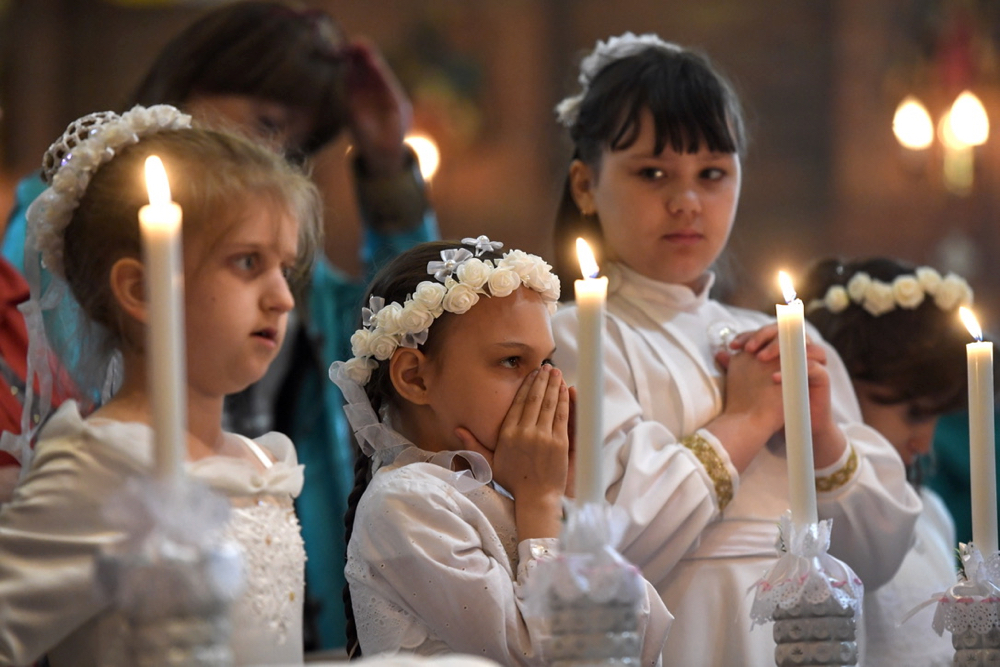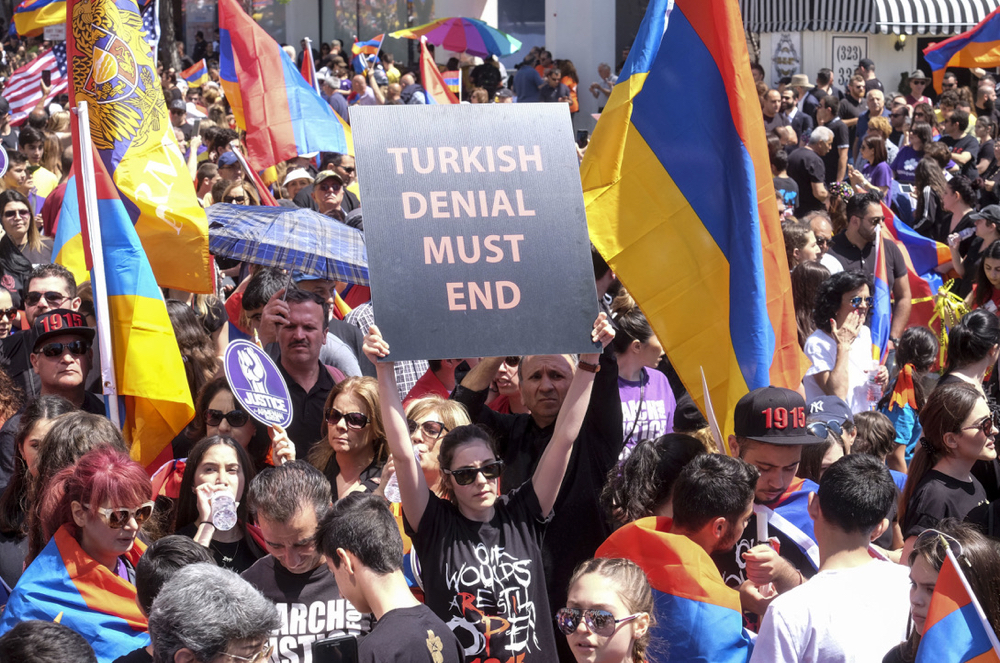Armenian church leaders have welcomed last week's overwhelming US Congress vote to recognise and condemn the early twentieth century Turkish massacre of Armenians as genocide, but warned that issues of truth and restitution are still unresolved.
"This is an important step in the context of restoring historical justice to the Armenian people and commemorating our sacred victims of the genocide", the Armenian Apostolic church's governing supreme council, headed by Catholicos Karekin II, said in a statement from Etchmiadzin. "Organisations and individuals have made tireless efforts to reach this milestone in international recognition and condemnation.... We hope the United States authorities and good people will continue their utmost to promote recognition of this genocide and prevent such atrocities in the world".
The church was reacting to the vote by 405 to 11 in the US lower house, despite its condemnation as a "grave mistake" and "meaningless political step" by the government by Turkish president Recep Tayyip Erdogan.
Meanwhile, the move was also lauded by Armenia's second Lebanon-based Apostolic patriarch, as reflecting a US "firm commitment to human rights".
"The rights of the Armenian people are being violated – for more than 100 years, we have tried to bring the international community's attention to the Armenian genocide as a fact of history," Catholicos Aram I of Cilicia told the Illinois-based Christianity Today magazine. "This is our legitimate claim: that the international community make a visible, tangible manifestation of their human rights concern and recognise the Armenian genocide, which was carefully planned and systematically executed by the government at the time".
Up to 1.5 million mostly Christian Armenians are believed to have been killed by Ottoman Turks in 1915-23, during waves of expulsion and ethnic cleansing. The atrocities have so far been branded genocide by governments and parliaments of 32 countries, making the Ankara government, which disputes the figures, liable to mass damages.
Media reports said the US Congress vote had been timed in protest at the current Turkish military occupation of northern Syria, which followed a pull-out by US forces and has left thousands dead and over 180,000 displaced.
In his Christianity Today interview, Aram I said his own Cilicia see had been forced to leave Armenia because of the massacres, and was still seeking the return by Turkey of its surviving churches and monasteries, some of which were now used as mosques and restaurants.
"Human rights issues are part of the mission of any church, and we want to help our people continue this struggle – what we seek is the restoration of historical truth", the Armenian Apostolic leader said. "This genocide is deeply rooted in our common consciousness, and you cannot uproot it. Nor can you solve this problem around the table by coming to dialogue. The atmosphere itself must change".
Turkey temporarily suspended diplomatic ties with the Vatican in 2015, in retaliation for the Pope's use of the term "genocide" during a St Peter's Basilica Mass. During a June 2016 pilgrimage to Armenia, Francis repeated that the "genocide" had "marked the start of a sad series of great catastrophes", prompting fresh anger from Turkey.
In 2017, US President Donald Trump criticised the mass killings as "one of the worst mass atrocities of the Twentieth Century", but stopped short of using the word genocide in line with then US policy.
The UK government believes the massacres were an "appalling tragedy" but does not recognise them as genocide.
The Holocaust Memorial Day Trust said it could not comment directly on the ruling. However, chief executive Olivia Marks-Woldman told The Tablet: "Between 1915 and 1923, the Armenian population of the Ottoman Empire were systematically persecuted, deported from their homes and murdered. The legal definition of genocide was first devised by Raphael Lemkin in response to these atrocities. Lemkin was determined to ensure that, in future, international courts would hold perpetrators to account. It’s so important that we all act to prevent identity-based violence, and on Holocaust Memorial Day on 27 January, thousands of groups across the UK will come together to learn from genocide, for a better future."



 Loading ...
Loading ...